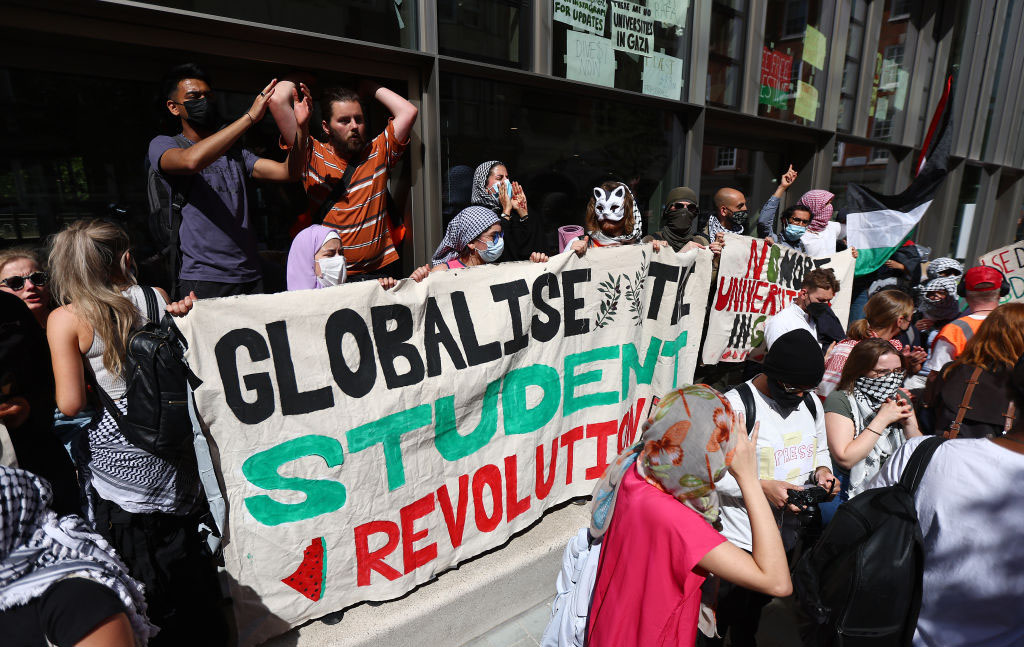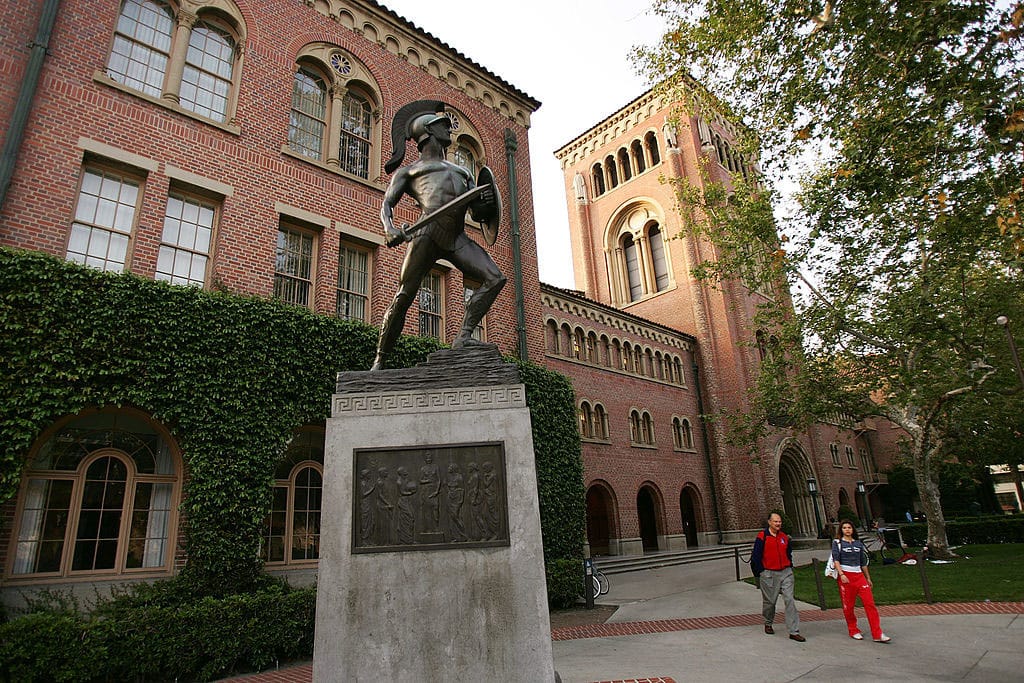 Families of hostages held in the Gaza Strip by Hamas and supporters protest near the hotel of US Secretary of State Antony Blinken during his visit to the country on June 11, 2024 in Tel Aviv, Israel.n(Photo by Amir Levy/Getty Images)
Families of hostages held in the Gaza Strip by Hamas and supporters protest near the hotel of US Secretary of State Antony Blinken during his visit to the country on June 11, 2024 in Tel Aviv, Israel.n(Photo by Amir Levy/Getty Images) For Jews in America and around the world, our feelings about the state of Israel are a never-ending balancing act between our hearts and our heads. We learn about biblical Israel as children, and the lessons of our faith, our history and our heritage provide an emotional construct that guides us throughout our lives. But Judaism is an intellectual exercise as well: We are taught from an early age to challenge, to argue and to contemplate. We continue to struggle with this tug-of-war as adults. Our deep affection for the Jewish state is interwoven with our analysis of the complicated geopolitics of the Middle East and the intricate domestic politics of Israel itself.
In roughly 24 hours last weekend, both sides of our relationship with Israel came into stark relief. On Saturday, our hearts were lifted when four of the hostages taken captive on Oct. 7 were rescued during a daring raid by IDF and Shin Bet special forces. The sight of families reuniting, newscasters crying and the people of Israel singing, dancing and embracing in celebration brought us the type of joy that we had not felt for Israel over these long, often excruciating months.
Our hearts were full, but our heads were already calculating the next set of obstacles we would be forced to confront. We knew that the death of Palestinians caused by Hamas’ attacks on the Israeli commandos during the rescue operation would lead to international outrage directed toward Israel. (No matter that the deaths were the direct result of Hamas deliberately embedding terrorists and hostages in heavily-populated civilian communities.) We recognized that only seven hostages had been freed by military action over the last several months and that the dozens of remaining survivors would now be moved into heavily guarded underground tunnels. And we realized that the operation’s success could actually damage the negotiations aimed at freeing those still held in captivity.
The balance between emotional exuberance and unforgiving reality became even more difficult the following day, when Israeli war Cabinet member Benny Gantz resigned his position citing his frustration with Prime Minister Benjamin Netanyahu’s management of the war effort. Gantz had threatened to take this step last month unless Netanyahu laid out a more detailed path forward for freeing the hostages and administering Gaza after the war. Gantz, a longtime Netanyahu critic who set aside his political differences to join the cabinet in a display of wartime unity, has long been expected to run against Netanyahu in the future and has called for elections this fall. Unless Netanyahu’s most conservative allies turn on him, that is unlikely to happen.
The departure of the centrist Gantz will have little impact on the short-term prosecution of the war against Hamas. But as Netanyahu becomes more reliant on the most extreme members of his government, who have harshly criticized the U.S.-sponsored peace proposal and threatened to abandon Netanyahu should he support it, the prime minister’s willingness to engage in serious negotiations will diminish. American Secretary of State Antony Blinken arrived in the region last weekend and met with Netanyahu on Monday in a frantic effort to push the ceasefire plan forward. But Gantz’ resignation makes that task far more challenging.
The Biden Administration is also pushing forward on other fronts. Most notably, it has been reported that State Department officials have been discussing a potential unilateral agreement with Hamas to release the five remaining Americans being held hostage in Gaza. Such a step would cause a severe estrangement between the U.S. and Israeli governments, perhaps the worst of the modern era. But it would also inflame the populist outrage against Netanyahu that has been growing to force him to do more to secure the release of the rest of the hostages. Whether that pressure would be enough to overcome the insistence of his conservative allies is impossible to predict.
Let us rejoice at the return of Noa Argamani, Almog Meir Jan, Andrey Kozlov, and Shlomi Ziv. But let us also remember that once the dancing and singing are done, the path forward may be even more difficult.
Let us rejoice at the return of Noa Argamani, Almog Meir Jan, Andrey Kozlov, and Shlomi Ziv. But let us also remember that once the dancing and singing are done, the path forward may become even more difficult.
Dan Schnur is the U.S. Politics Editor for the Jewish Journal. He teaches courses in politics, communications, and leadership at UC Berkeley, USC and Pepperdine. He hosts the monthly webinar “The Dan Schnur Political Report” for the Los Angeles World Affairs Council & Town Hall. Follow Dan’s work at www.danschnurpolitics.com.























 More news and opinions than at a Shabbat dinner, right in your inbox.
More news and opinions than at a Shabbat dinner, right in your inbox.